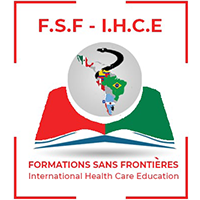The Mexican state of Tamaulipas has seen violence indicators increase to an historic level: its capital, Ciudad Victoria was the eight most violent cities in the world and n°5 in Mexico in 2017. Reynosa is considered as the 38th most dangerous city in the world. In Reynosa, the war for the control of the area led to a significant increase of violence with 424 homicides in 2017 compared to 2886 in 2016.
There has been an increase of 47% of deportees from the USA in Reynosa and Matamoros during the first half of 2018, compared to the first half of 2017.
It’s essential to consider that People on the move have greater vulnerability due to violence. Being a target of organized crime, they can be victims of direct violence, extortion, kidnappings, human trafficking and others.
They face barriers to access to the state’s health and social services. In Mexico, health care and social services for people on the move in Mexico are mainly provided by non-governmental actors (religious organizations, Mexican Red Cross, MSF.).
Security management remains highly challenging in this volatile context and the risk of being caught in the middle of crossfire is still present (average of 57 crossfire/shooting incidents per month resulting in 27 deaths per month).
Humanitarian Needs in The Region

High levels of violence have immediate and time-sensitive humanitarian implications for protection, access to healthcare, education and psychosocial support for the population. Access to vulnerable and at-risk populations (including host populations & people on the move) in Reynosa and Matamoros is often restricted by illegal armed and criminal groups that have control over the territories or communities. Psychological services are offered to different types of patients through vertical programs, but no specific care is offered to victims of violence (within the host population) or people on the move by the government (MoH) or any other organization.
While the Reynosa residents have “normalized” the violence causing chronic mental health disorders including, depression, anxiety and psychosomatic diseases whereas migrants are victims of single episodes of extreme violence (kidnapping, sexual violence, deportations etc) provoking acute psychological disorders.
People on the move in Tamaulipas state are affected by events like kidnapping, extortion, disappearances.
In the recent years, public insecurity became more acute and violence, homicides, forced disappearances, extortion and other forms of non-lethal violence became rampant. According to UNHCR12, violence and persecution, caused mostly by criminal groups in the NTCA, continues to trigger the forced displacement of civilians towards Mexico. In 2020, the main drivers of forced displacement are expected to continue, resulting in increasing numbers of people fleeing violence in the North of Central America (NCA) to Mexico. Security risks are likely to evolve due to the presence of criminal organizations along migration routes, and the increasing cost of travelling north, could continue to affect people’s decision to remain in Mexico.
In Mexico, there are four main categories of people on the move:
- Internally displaced people
- Returnees deported from the US
- International & Regional irregular migrant
- Asylum Seekers

Migrants could also be grouped in: those traveling towards the USA, and those deported from the USA
Recently, Mexico has instituted laws that protect the passage of migrants through its country, ensuring that their entry into Mexico is not deemed as a criminal offense, and guaranteeing certain protections, with special attention to minorities, including women, children, indigenous people and the elderly. In December 2014, the federal government entitled undocumented foreigners to health care coverage for a period of three months, without discrimination through the Seguro Popular plan. However, in practice, health care services remain restricted for migrants and asylum seekers/refugees traveling through Mexico.
According to ITM, Reynosa and Matamoros received around 35,733 deportees from the US in 2017. In 2018 the number already increased in 47% (the first 7 months), and is expected to continue rising. The main activities related with migrants are protection and hospital referrals for acute injuries.
People on the move are in a vulnerable situation and reported themselves being subjected to some type of violence, either during the migration process. Extortions, forced recruitment to organized crime, sexual violence, threats, kidnappings and physical violence are common issues affecting the population FSF-IHCE serves. There is a gap in the provision of protection services; essential food and potable water; basic shelter and housing; appropriate clothing; and essential medical services (mainly in mental health) and sanitation. Moreover, the conditions of detentions prior to deportation, as well as some shelters are precarious, and many people reported being assaulted or mistreated while in custody of the United States.
Finally, once the returnees arrive in Mexico there is limited (INM, ITM) support from the authorities.

